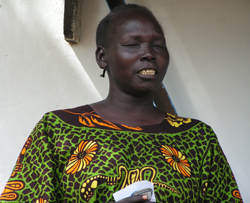
Remembering South Sudan’s pioneer female reporter
When The Juba Post’s star reporter, Apollonia Mathia, told me that so-called “tong tong” rebels had attacked again near Gumba, in southern Sudan, I looked at her warily. “Let me get the camera I’ll check it out,” she said. Apollonia planned to hop on our rickety motorbike to cover a story about the infamous Ugandan…
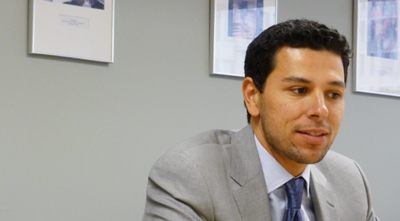
Q&A: Ayman Mohyeldin, Al-Jazeera English correspondent
For the millions of non-Arabic speakers around the world who followed Egypt’s revolution live one journalist stood out–Ayman Mohyeldin of Al-Jazeera English. Mohyeldin, 32, used his knowledge of the region and of the West to make sense of the events unfolding in Cairo’s Tahrir Square for an international audience. He also witnessed the unprecedented wave…
At SXSW Interactive, theory and reality converge
I’ve just returned from a hectic week at SXSW Interactive, the annual gathering of digital technologists and creators in Austin, Texas. Conferences like this are often moments of isolation from the rest of the world, where attendees become consumed with the trivia of the event itself. But because many of those attending SXSWi are prolific…
Safety advisories for journalists covering Libya
The Libyan conflict is the most recent in a string of dangerous international stories. Several journalists are missing. A BBC crew was detained and subjected to beatings and a mock execution. TV crews report having their equipment seized. The Europe-based International News Safety Institute, a consortium of news organizations and journalist groups including CPJ, is…
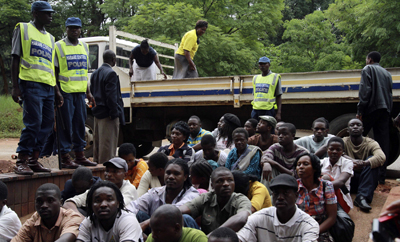
Zimbabwe charges 45 with treason for viewing Egypt footage
The right to receive and impart information is a fundamental human right enshrined in the United Nations’ Universal Declaration of Human Rights, but in Zimbabwe, watching news of North African and Middle East protests apparently amounts to treason.
Libya’s disordered Internet
Craig Labowitz at Arbor has been sifting through the evidence of how countries in the Middle East have been blocking and throttling the Internet in the last week. His analysis indicates that while both Bahrain and Yemen had periods of slowed or impaired access, only Libya seems to have taken the drastic step of shutting off the…
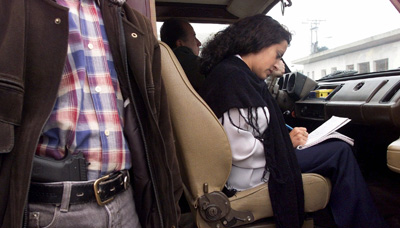
Documenting sexual violence against journalists
The news of the sexual assault against CPJ board member and CBS correspondent Lara Logan hit us hard on Tuesday. At CPJ, we work daily to advocate on behalf of journalists under attack in all kinds of horrific situations around the world. Because of Lara’s untiring work with our Journalist Assistance program, she’s well known…
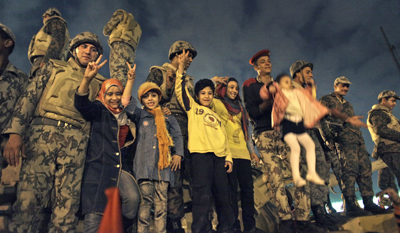
Courage in documenting Egypt’s revolution
Today, on its 18th day, the Egyptian revolution has finally achieved its goal, deposing Hosni Mubarak and his regime. Egyptian journalists who have courageously found ways to work under the yoke of Mubarak’s censorship and repression are releasing a sigh of relief that they’ve held in for three long decades.

Reporter goes inside Egypt’s Mukhabarat torture regime
When Radio Free Europe/Radio Liberty reporter Robert Tait was taken into custody by Egyptian authorities at a police checkpoint near central Cairo on February 4, he didn’t know he’d become witness to torture. But, cuffed and blindfolded for 28 hours, Tait heard and saw beatings and electrocutions. “My experience, while highly personal, wasn’t really about…